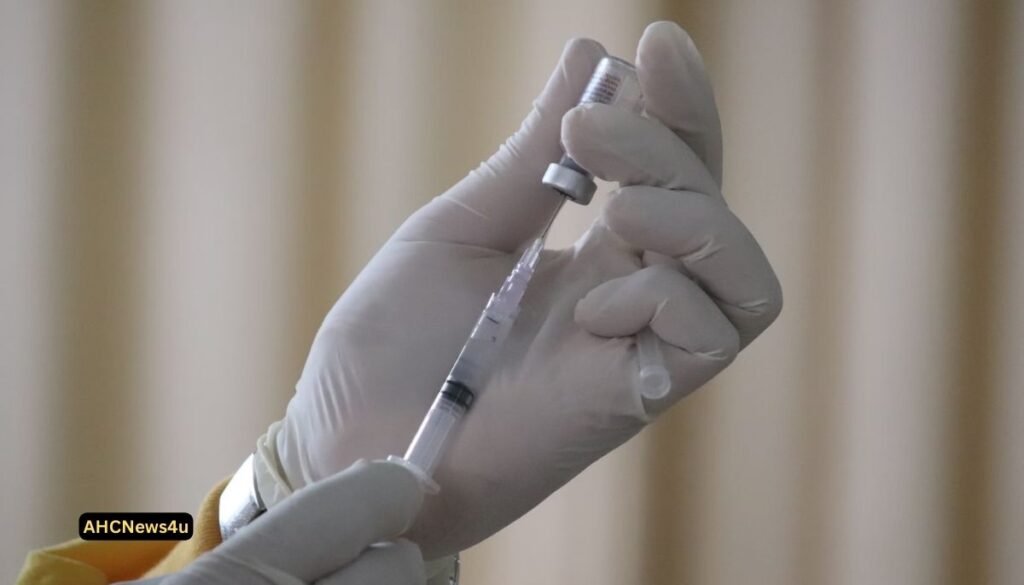Concentrate on Underlines Job of Past Treacheries in Clinical Question: A Waiting Shadow Over Medical Services
A new report by specialists at the College of Georgia has revealed insight into the persevering effect of verifiable treacheries on medical care access and trust. The review, named “The Long Shadow of Tuskegee: Looking at the Connection Between Past Clinical Trial and Error and Coronavirus Immunization Reluctance Among Dark Americans,” features an unsettling join between the scandalous Tuskegee Syphilis Study and lower Coronavirus immunization rates in African American populations situated close to the review’s site.

A Tradition of Treachery: The Tuskegee Syphilis Study
The Tuskegee Syphilis Study, directed by the U.S. General Wellbeing Administration from 1932 to 1972, remains a dull stain on American clinical history. The review selected many People of color assuming some pretense of free treatment for “animosity,” yet in all actuality, kept compelling treatment for syphilis to notice the illness’ movement. This barefaced negligence for human existence and moral examination standards dissolved trust in the clinical foundation for ages of Dark Americans.
The Tuskegee Impact: A Waiting Uniqueness
The College of Georgia study uncovers an unmistakable connection between’s nearness to the Tuskegee study and Coronavirus immunization reluctance among Dark Americans. Areas nearer to the Tuskegee site displayed fundamentally lower inoculation rates contrasted with African American populations further away. This finding recommends that the verifiable injury caused by the Tuskegee concentrate keeps on creating a long shaded area, impacting medical care choices in the current day.
Past Tuskegee: A More Extensive Setting of Clinical Question
The Tuskegee study is not a disengaged episode. A long history of deceptive clinical trial and error on ethnic minorities, combined with racial differences in medical services quality and access, has encouraged a firmly established doubt of the clinical framework inside many African American populations. This doubt can appear in immunization aversion, hesitance to look for precautionary care, and deferred analysis.

Tending to Clinical Question: Building Extensions of Trust
- The discoveries of “The Long Shadow of Tuskegee” concentrate on highlighting the pressing need to address clinical doubt among Dark Americans. Here are a few key systems:
- Expanded Straightforwardness and Instruction: Medical services suppliers should focus on straightforwardness by transparently examining verifiable treacheries and showing a guarantee to moral practices. Instructive drives can assist with scattering fantasies and assembling trust in clinical science.
- Socially Skillful Consideration: Building trust requires socially able consideration that recognizes and regards patients’ experiences and concerns. Socially touchy correspondence and a different medical care labor force are urgent in cultivating positive patient encounters.
- Local area Commitment: Drawing in with African American populations through organizations with believed pioneers and associations can assist with building trust and addressing immunization reluctance at a neighborhood level. Local area outreach projects can give precise data and address explicit worries.
- Putting resources into General well-being drives: Sufficient subsidizing for general well-being drives is fundamental for guaranteeing evenhanded admittance to medical care and precaution administrations. This incorporates supporting local area centers and projects that cook explicitly to the necessities of underserved networks.
FAQs: Figuring out Clinical Doubt
What is a clinical question?
Clinical doubt alludes to an absence of certainty or a negative view of the clinical framework. This can be established in verifiable treacheries, pessimistic individual encounters, or an absence of social capability inside medical services suppliers.
How does the Tuskegee Syphilis Study add to clinical doubt?
The Tuskegee study is a strong image of clinical double-dealing, driving many Dark Americans to scrutinize the intentions and morals of the clinical framework.
What are the outcomes of clinical questions?
Clinical questions can prompt antibody aversion, postponed judgments, and hesitance to look for safeguard care. These variables can add to more unfortunate well-being results for minimized networks.
How might we address clinical questions?
Building trust requires straightforwardness, socially capable consideration, local area commitment, interest in general well-being drives, and a promise to moral practices.
Which job do patients play in tending to clinical questions?
Patients can advocate for themselves by clarifying pressing issues, looking for second feelings, and taking part in shared decision-production with their medical care suppliers.
Which job do medical care suppliers play in tending to clinical questions?
Medical services suppliers can assemble trust by being straightforward, socially delicate, and effectively paying attention to their patient’s interests.
Which job do policymakers play in tending to clinical questions?
Policymakers can address clinical questions by supporting drives that advance variety in the medical care labor force, store local area wellbeing programs, and put resources into research zeroed in on tending to racial variations in medical services.
Where might I at any point track down more data about clinical questions?
You can track down astute articles, research synopses, and well-qualified conclusions on clinical doubt on AHCNews4u.com [AHCNews4u.com].
Searching for a Confided in Hotspot for Wellbeing News?
Clinical question is a mind-boggling issue with significant ramifications for general well-being. AHCNews4u.com [AHC

